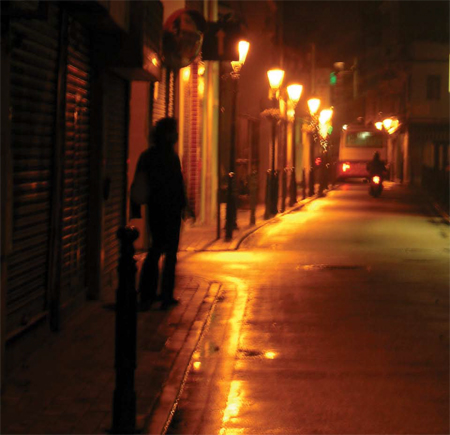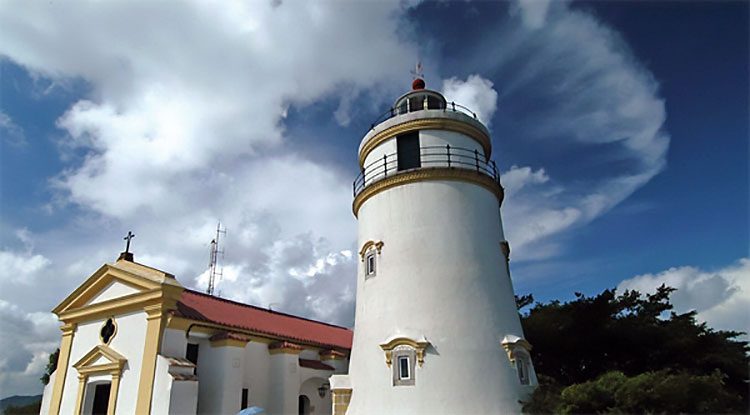Macau’s gaming boom has led to huge demand for overseas casino staff. HR researcher Leanda Lee explains that if casino operators wish to retain their valued expatriate employees, relocation should be made less of a chore
I have just come across the most amazing service offering in Macau: it is a telephone service by which you can have a sticker placed on your car and if you happen to be blocking the way of others they can call the number and an SMS will be sent to you to move your car. To those who are new to Macau, the conceptualisation of such a thing is unfathomable. Such is the plethora of “unfathomables” in store for those newly arrived to Macau. Call it culture shock, call it bureaucracy shock, call it institutional shock; even for those with high tolerance of difference, excited by new environments and open to new experiences, living and working in Macau can test you. Some overseas workers choose to engage with the community, some choose to separate and mix only amongst their own and others choose to insulate themselves from that which they cannot accept and go with the flow when they can.
Since the opening up of its gaming industry in 2001, Macau has seen a growing number of overseas workers, or expatriates, relocate here. Of recent times they have become much more visible, not just because of their numbers but because of their countries of origin. Non-Asian non-resident workers have more than doubled since 2001 and Hong Kong employees have gone from hardly a blip on the screen in 2001 to 18% of Blue Card holders in 2006. There are more western people and professionals from Hong Kong to be seen walking around the streets: well dressed ladies of the corporate mould, suited gentlemen in groups of 2 or 3 dashing to quick lunches and fair skinned children making their way to schools in Taipa. This is not the whole story, for in addition 26,000 residents were added to the population over the year to September 2006 and only 1,000 of them were born in Macau. Not only is the Macau immigration department having to cope with this influx but employers are quickly having to learn the needs of their expatriate managers and their families. Some do it well, many do not.
No support
Organisations certainly have a tough time of it. Dare I say it, Macau is not like Hong Kong: the mature support mechanisms for a constant turnover of expatriates are not in place. There are not the sporting and social clubs where families and expatriate workers can quickly access social networks: the pubs and bars of NAPE and Taipa, the Macau International Ladies Club, and networks that inevitably develop around school drop-off and pick-up are the closest that one can find. Information about schooling, accommodation, utilities, health services, banks and immigration is generally obtained informally by word-of- mouth rather than through employers, relocation consultants (relocation whats?), or clear communication from the sources of services themselves.
There are some good support services available but they are often difficult to find. Expatriates can be in Macau years before they hear about the benefits of applying for residency and the difference between Blue, Yellow and White cards. Where are the libraries and foreign language bookstores? What is the full range of options for schooling children? And they charge you to deposit money into your own bank account? Yes, if it’s more than HK$30,000 cash at one time. Where else can you get money out of an ATM and then not have the cash accepted at the post office around the corner for fear of counterfeit notes? And the one about the 2 year old Australian boy who was about to be deported even though his parents had valid visas. Tried bringing your de facto spouse to Macau to live with you? The stories are endless.
All of this impacts upon the ability of expatriates and their families to settle happily, and upon their willingness to stay and to work effectively in Macau. It also impacts greatly on organisations in their attempts to recruit and retain off-shore employees. One ex-Macau HR executive facetiously suggested to me that supporting expatriates to enhance their work performance was easy: organisations merely need to pay expatriate managers more money, but this is no joke. This is indeed what is occurring in Macau. The gaming industry is the industry with the largest growth and shortest supply of labour (from 22,100 employees in 2001 to 55,300 in the third quarter of 2006): average salaries have increased by 60% against a total average increase of 44% over the same period. There is much more that can be done to make the move to Macau one that many more are willing to contemplate.

Value beyond money
The salary is one thing and many executives will do their sums and calculate the cost of sending their older children to good boarding schools, the cost of health cover, fares to return home for family reunions, and will shrug their shoulders when they realise that not all these things may have been considered by their new employers. This they do because their base salaries more than cover these costs. The happier executive is one that feels the organisation values them as an individual and has taken the whole person into consideration in the hiring and welcoming of the employee.
Companies can show managers they value them by taking time to consider their lifestyle needs: to compile information about immigration, schooling options, employment opportunities for the trailing spouse, training the executive and the executive’s family in cross-cultural issues, helping them to find suitable accommodation, utility and telephone deals, giving them lists of contacts for doctors and dentists and emergency services, and how to book a taxi or the process one takes to purchase a car, renew registration (by the way, they do not send an account when it is due) and obtain a driving permit. Each step along the way is a learning process and to date thousands of potentially productive hours have been wasted as each and every newcomer learns the ropes for themselves.
Lost focus
Organisations may over-estimate a newly arrived expatriate’s ability to handle adjustment problems. The spouse who acts as a proxy Human Resource department, running errands and standing in immigration department queues, and who supports other newly arrived expatriate families with tours of schools and accommodation has the coercive power to dislodge an expatriate from the job and return home. The expatriate who cannot get the employer to pay $1,000 patacas for an immigration consultant and thus wastes 3 weeks on understanding and compiling paper work, and lending a supportive ear to the distraught spouse, is not sitting as his desk or pounding the main floor doing the job hired for. Organisations can clearly see the failures in their expatriate turnover rates. Less recognised are the brown-outs when expatriates are unable to perform at their peak level because their focus is not on their role as they grapple with setting up home and settling into an uncertain environment.
Productivity is not the only cost. Family harmony, emotional stability and commitment to the organisation are very often sacrificed. In a market where expatriates are constantly looking for the next career opportunity and properties are clambering for experience and willing to pay higher prices to get them, the organisation that can differentiate itself as the one that values their employees will have a greater chance of keeping their star performers.
The face of Macau is changing. There will be more foreigners seen on the streets. The visitors will only continue to come if they enjoy the experience. What the employers, the government and the wider community manage to do to make life easier and enjoyable for the workforce that services these visitors can only enhance the experience forthe tourists. The life of an expatriate worker in Macau is a full one. Let’s hope that the ‘unfathomables’ do not distract them from contributing productively to their roles in their newly adopted community.
Leanda Lee is a PhD researcher in the Department of Management, Faculty of Business and Economics, Monash University. Leanda currently resides in Macau and her research focuses on the factors that influence the performance of expatriates living in Hong Kong and Macau. She has taught International Human Resource Management, International business and Japanese language
































